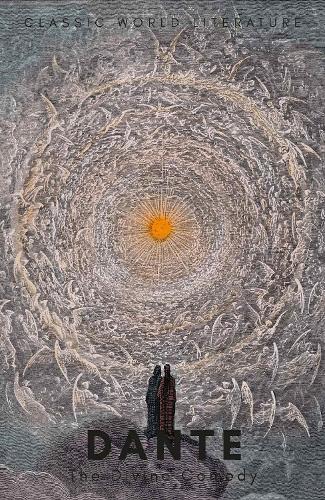
The Divine Comedy
(Paperback)
Available Formats
Hardback
Published: 30th June 1995
Paperback
Published: 5th February 2009
Paperback
Published: 2nd July 2019
Leather / fine binding
Published: 21st October 2013
Hardback
Published: 1st March 2025
Paperback
Published: 31st December 1963
Paperback
Published: 1st May 1990
Paperback
Published: 1st May 1990
Paperback
Published: 29th May 1991
Paperback
Published: 29th May 1991
Paperback
Published: 11th November 1991
Paperback
Published: 11th November 1991
Paperback
Published: 30th November 2021
Paperback
Published: 24th April 2003
Paperback, 3rd edition
Published: 1st November 1986
Paperback, 2nd edition
Published: 1st July 1985
Paperback, 2nd edition
Published: 1st January 1964
Paperback
Published: 27th May 2003
Publishing Details
The Divine Comedy
By (Author) Dante Alighieri
Translated by H.F. Cary
Introduction by H.F. Cary
Series edited by Tom Griffith
Wordsworth Editions Ltd
Wordsworth Editions Ltd
5th February 2009
1st February 2009
United Kingdom
Classifications
General
Non Fiction
851.1
Physical Properties
Paperback
592
Width 129mm, Height 198mm, Spine 30mm
366g
Description
'The Divine Comedy' tells of the journey of a character who is at one and the same time both Dante himself and Everyman through the three realms of the Christian afterlife: Hell, Purgatory and Heaven. He presents a vision of the afterlife which is strikingly original in its conception, with a complex architecture and a coherent structure. On this journey Dante's protagonist and his reader meet characters who are variously noble, grotesque, beguiling, fearful, ridiculous, admirable, horrific and tender, and through them he is shown the consequences of sin, repentance and virtue, as he learns to avoid Hell and, through cleansing in Purgatory, to taste the joys of Heaven. AUTHOR: Dante Alighieri (1265-1321) is one of the most important and innovative figures of the European Middle Ages. Writing his Comedy (the epithet Divine was added by later admirers) in exile from his native Florence, he aimed to address a world gone astray both morally and politically. At the same time, he sought to push back the restrictive rules which traditionally governed writing in the Italian vernacular, to produce a radically new and all-encompassing work.
